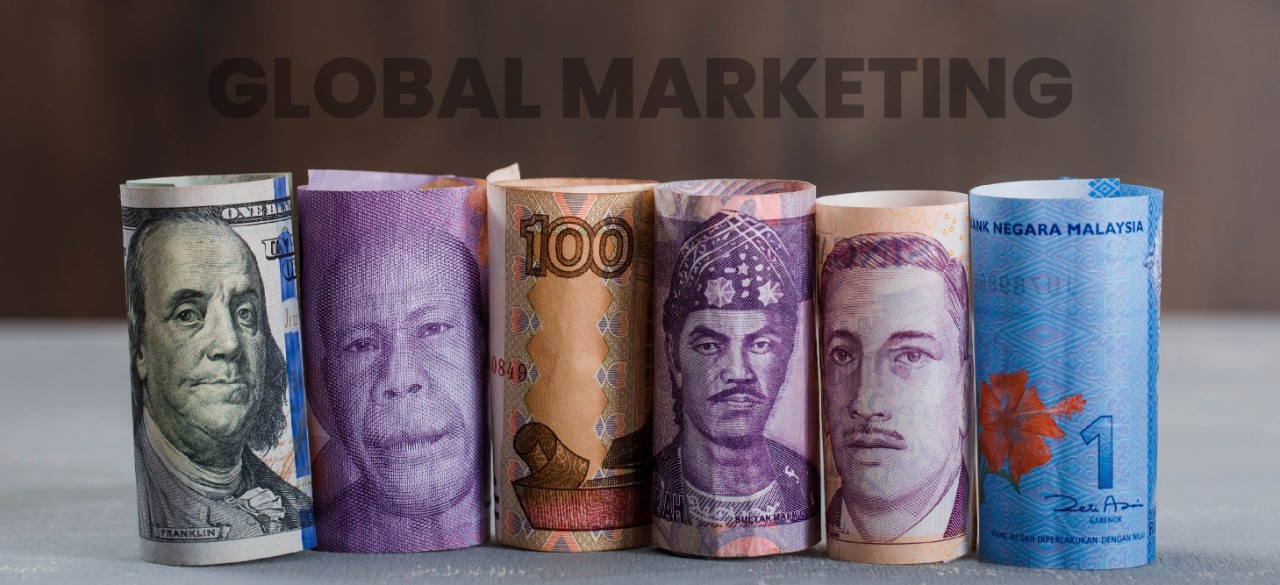Your All-in-One AI-Powered Toolkit for Academic Success.
+13062052269
info@desklib.com
Available 24*7 on WhatsApp / Email
![[object Object]](/_next/static/media/star-bottom.7253800d.svg)
Unlock your academic potential
© 2024 | Zucol Services PVT LTD | All rights reserved.
Your All-in-One AI-Powered Toolkit for Academic Success.
Available 24*7 on WhatsApp / Email
![[object Object]](/_next/static/media/star-bottom.7253800d.svg)
© 2024 | Zucol Services PVT LTD | All rights reserved.
A global marketing Management would discuss how companies should adapt to the market and personalize their services while maintaining their standards.

The study has a number of objectives, but they all revolve around the difficulty of choosing between standardization and customization in the hospitality industry. The method of designing and then conveying a final product or service internationally in the terms of attracting a global marketing audience is known as global marketing.
Hollensen (2020)Global Marketing continues to be the most up-to-date and thorough text of its kind, with cutting-edge case studies and a focus on the impact of new technologies and perspectives on international marketing. Standardization clearly simplifies and makes life easier; it is simple, cost-effective, predictable, and observable.
However, we have reached a point where standardization in the reservation process, room cleaning, room arrangement, and the process of greeting guests on arrival is no longer sufficient. The guest now expects more, and hotels are responding by attempting to make each guest feel special strengthened loyalty, and the ability to deal with competition.
Further, the global marketing essay would be talking about how companies have to adjust according to the market and personalize while keeping their standards and the base operations and services to the customer and how these companies need to adapt themselves. So, we should understand the concept of global marketing for better analysis.

Theodosiou and Leonidou(2003) incorporated a Conceptual Model of International Marketing Strategy in relation to standardization vs. adaptation According to the model, antecedent factors with both external and internal traits influence the degree of standardization or adaptation. Schmidt et al. (2007) also verify that standardization would provide benefits such as economies of scale in purchasing and cost savings associated with replicating store design and marketing strategies.
Additional benefits associated with standardization include synergetic positive effects on multiple business processes and worldwide uniformity of brand value proposition. Since industrial products are acquired for the same reasons all over the world, standardization is primarily a client in relation to these kinds of goods. Furthermore, from a technological standpoint, standardization can be especially beneficial for highly sophisticated and complex goods (Vrontis et al., 2009).
Furthermore, the notion of the " world consumer" (Hallgren et al., 2012) benefits the practice of standardization in marketing practices, according to which growing forces of globalization and the role of media, as well as constant travel on a global scale, have fueled harmonization of ideals and lifestyles across boundaries. Standardization, on the other hand, will have certain drawbacks. Standardization, for example, is often mocked for ignoring distinctive elements of local culture in foreign markets.
Local culture may have a significant influence on how each component of the marketing mix is perceived in general, and the marketing message in particular. At the psychological level, Korotkov et al. (2013) demonstrate the benefits of adaptation. According to Korotkov et al. (2013), product design, functionality, and capabilities that are tailored to the needs of a particular geographical customer segment are more likely to be valued by local customers, resulting in higher revenue levels.
Adaptation strategy is used extensively by Red Bull GmbH, an Austrian energy drink maker, in relation to all aspects of the marketing mix. Red Bull cans, for example, are available in red, silver, and blue in the North American market. In North America, red represents action and bravery, while blue is associated with youth and dynamism, according to local society. Red Bull, on the other hand, is manufactured in gold and red color in the Chinese market. So, it is important to analyze the marketing strategies of Red Bull.
since gold is associated with prosperity and prosperity in China, and red is regarded as good luck. The adaptation strategy enables global companies to react quickly to changes in the local market. These changes may be political, economic, technical, or technological; however, specific business procedures should be altered to remove or at least mitigate the negative effects of these changes.
The standardization vs. adaptation debate can be resolved in such a manner that standardization can be used to implement global marketing strategies in general, while adaptation can be used to address specific features of local markets. To put it another way, standardization and adaptation strategies do not have to be mutually exclusive; rather, a good balance is required.

To highlight this point, consider McDonald's case study. McDonald's uses a lot of standardization in supply-chain management, employee relations, service procedures, and many other business processes, allowing them to achieve economies of scale on many levels. Simultaneously, the firm operates adaptation by introducing Maharaja Mac in India.
In the Middle East, Mc Arabia, and in China, Mc Nuggets with Chili Garlic Sauce (Schumpeter, 2011). Adaptation is therefore relevant to McDonald's marketing strategy. In Singapore, for example, the fast-food chain has launched Kaisu Burger, named after a famous local comic character named Mr. Kaisu. As a result, McDonald's should benefit from both standardization and adaptation methods in the global marketplace.
To summarize the debate, global corporations in the twenty-first century must strive to take advantage of both standardization and adaptation strategies while keeping a proper balance between the two. As a result, global markets would benefit from standardization's advantages, such as reaching economies of scale and exercising the same competitive pressures for all markets.
Globalization is influenced by economics. According to Webster's Online Dictionary, economics is " a branch of science concerned with the study of money. Social science is primarily concerned with the analysis and description of the Good's production and consumption as well as products and services There's only so much you can do. a company's potential market share by living in their own country or staying local.
Expansion, which also includes globalization, becomes the key to gaining additional market share. Several firms, including Starbucks, Marriott, McDonald's, and Hyatt, have managed to stay afloat by deciding to take their businesses global. In the International Journal of Contemporary Hospitality Management, author J. Mark Munoz discussed the relevance of changing company dynamics in a globalized climate which necessitates strategic operational adjustments by hospitality managers, particularly those in the food and beverage industry. Both the microenvironment and the macroenvironment affect the entire business environment.
As a result, rather than being contradictory, they are complementary. The study of these settings would assist in identifying a company's power, weakness, opportunity, and danger.
The last factor that contributes to globalization in the hospitality industry is cultural differences. The globe is filled with a diverse range of civilizations. Companies must adapt and change their approaches as a result of cultural differences, which will lead to globalization. Many businesses begin in the United States and then decide to branch out into other countries.
When a company decides to go global, it must consider the various cultures to which it will sell. Locals/natives must be informed about the kinds of meals served by hospitality firms. They may also be familiar with the lifestyles of the cultures in which they are trying to sell their goods. Companies in the hospitality industry must be aware of the differences between currency and language. No food chain company in India sells beef as it’s against the culture of the country as the people in India are against it.
In order to serve Chinese-speaking tourists, the Beijing Marriott City Wall Hotel and Resort in Beijing, China, cannot have an English-speaking front desk clerk who does not also speak Chinese. To successfully assist the guests, someone who speaks Chinese must be present.

To summarize, globalization can be extremely beneficial, but it can also be extremely dangerous. There is a number of Advantages and Disadvantages of Globalisation. It will take a great deal of planning and research, just like any other business venture. A number of rules and policies may vary significantly from those in the company's home country.
Globalization is fiercely competitive, and the survival of the fittest can be applied to it. The hospitality industry is compelled to use the globalization model in today's economy. To prosper and travel in the global market, businesses and visitors want hotels, resorts, travel agencies, and food services. The hospitality industry's services are easier for visitors to access and use as a result of globalization. In conclusion, the impact of globalization on the hospitality industry has benefited greatly. Globalization, on the other hand, can be a double-edged sword. If a company is to succeed in the global marketplace, it must plan, arrange, explore, plan for diversity, and be ready to adapt to different cultures.
Chumpeter, J. (2011) “McDonald’s the innovator” The Economist, June 16, 2011 edition
Hollensen (2020) Global Marketing_p8
Hallgren, M., Nilsson, A., Blomquist, T. & Soderholm, A. (2012) “Relevance Lost! A Critical Review of Project Management Standardisation” International Journal of Managing Projects in Business, Vol.5, Issue 3, 2012
Korotkov, N., Occhiocupo, N. & Simkin, L. (2013) “Simulated test marketing in emerging markets: the need to re-think” Marketing Intelligence & Planning Vol.31, Issue 7, 2013
Munoz, J. M. (2005). Executive insights on globalization: Implications for hospitality managers in emerging locations. The International Journal of Contemporary Hospitality Management. Retrieved from, http://www.emeraldinsight.com/Insight/viewContentItem.do?cont entType=Article&hdAction=lnkh tml&contentId=1502569
Schmidt, S.O., Tyler, K. & Brennan, R. (2007) “adaptation in inter-firm relationships: classification, motivation, calculation” Journal of Services Marketing, Vol.21, Issue 7, 2007
Theodosiou, M. & Leonidou, L.C. (2003) “Standardisation versus Adaptation of International Marketing Strategy: An Integrative Assessment of the Empirical Research” International Business Review, Vol.12, Issue 2, 2003
Vrontis, D., Thrassou, A. & Lamprianou, I, (2009) “International Marketing Adaptation versus Standardisation of Multinational Companies” International Marketing Review, Vol. 26, Issue: 4/5, 2009
Webster’s Online Dictionary. Retrieved from http://www.merriamwebster.com/